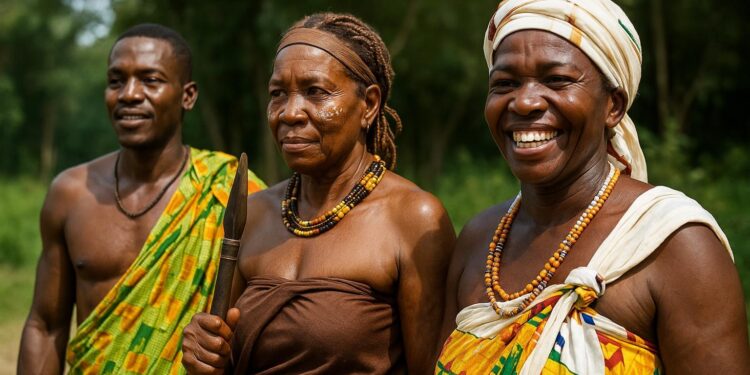Central Africa gears up for Nabemba Tourism Expo 2025
From 18 to 20 November 2025, Brazzaville will host the inaugural Nabemba Tourism Expo, a gathering designed to spotlight Central Africa’s largely untapped travel assets.
Under the theme “Internal Tourism: Issues and Challenges”, organisers expect tour operators, digital platforms, airlines and development agencies from at least ten countries to trade ideas, showcase products and negotiate joint itineraries that could place Congo-Brazzaville firmly on the regional tourist map.
Internal tourism at the heart of diversification
Tourism currently contributes less than 3 % to Congo’s GDP, according to Ministry of Tourism estimates, yet the 2022–2026 National Development Plan lists leisure travel among the five pillars meant to complement oil revenues and secure longer-term, broad-based growth.
Encouraging residents to explore domestic destinations lowers reliance on international arrivals, stabilises seasonal income for operators and helps officials measure the real demand for roads, broadband and safety services outside Brazzaville and Pointe-Noire.
Ngabé: a natural theater for new visitor journeys
Many activities will spotlight the Ngabé tourist site, 120 kilometres north of the capital, renowned for lush riverine landscapes and cultural heritage linked to the Teke kingdom.
Virtual-reality tours planned for the expo will allow travel agents to sample canoe circuits and forest lodges without leaving the convention hall, a technological teaser expected to convert into tangible bookings once upgraded landing stages and eco-friendly cabins are delivered in 2026.
Government support and policy signals
Speaking at a 4 November press briefing, Ministry delegate Franck Mombeka reiterated that fiscal incentives introduced in the 2021 Investment Charter—exemption from value-added tax on imported tourism equipment and accelerated depreciation rules—remain in force for operators registering before mid-2025 (Journal de Brazza, 04/11/2024).
The government also plans to add tourism-specific indicators to the Ease of Doing Business reform dashboard, providing quarterly data on licensing timelines, lodge classification and visitor satisfaction, a move welcomed by the African Travel and Tourism Association as “evidence-based stewardship”.
Private sector sees upside in hospitality pipeline
Congo currently counts fewer than 7,000 classified hotel rooms, yet consultancy Horwath HTL anticipates demand for an additional 2,500 keys by 2030 should the Nabemba Expo translate into a sustained annual growth rate of 8 % in domestic travel.
Local banks have already earmarked 15 billion CFA francs in credit lines for lodge refurbishment, while international chains explore management contracts in Brazzaville’s central business district, where average occupancy rebounded to 62 % in 2024, according to the Congolese Employers Federation.
Sustainability and digital experiences in focus
Workshop agendas feature carbon-neutral certification, waste-to-energy solutions for remote camps and blockchain-enabled ticketing, aligning with Congo’s commitment to maintain 60 % forest cover within the Congo Basin, reiterated at COP28.
Developers view such standards not merely as ethical imperatives but as prerequisites for accessing green finance windows from the African Development Bank and the International Finance Corporation, both of which now index loan margins to verifiable environmental outcomes.
Human capital: training Congolese youth for service
The National Tourism Academy in Kintélé will run accelerated courses in hospitality management and digital marketing ahead of the expo, targeting 500 young professionals under a partnership with the European Union-funded ARCHIPELAGO programme.
Graduates stand to secure roles as event coordinators, community guides or content creators, bolstering employment prospects in a country where the urban youth unemployment rate hovers around 19 %, official labour statistics show.
Regional connectivity and diaspora appeal
Equatorial Congo Airlines intends to increase domestic frequencies during the fair, while Camair-Co and Ceiba Intercontinental are in talks for code-share agreements that could funnel visitors from Douala, Malabo and Libreville into Maya-Maya International Airport.
The Congolese diaspora, estimated at 160,000 in Europe and North America, is also courted through targeted social-media campaigns promising heritage trails and family reunion packages that combine cultural festivals with responsible forest excursions.
Metrics to watch beyond the three-day fair
Organisers have set a target of 5,000 physical attendees and 20,000 virtual visitors, metrics that will be tracked in real time via a dashboard hosted by the Congolese Agency for the Promotion of Digital Economy.
Market analysts will scrutinise hotel occupancy, domestic flight bookings and mobile money spends during and after the event; a sustained uptick through first-quarter 2026 would suggest the expo has seeded a durable internal tourism cycle.
Cultural showcases and creative industries
Beyond nature, the expo will stage choreographed performances of Mâkôu herring dance, contemporary fashion using raffia fibre and culinary demonstrations featuring saka-saka variations, elements intended to reinforce the narrative that tourism can amplify Congo’s creative economy.
Producers from streaming platforms have been invited to capture these showcases for mini-documentaries, a strategy that mirrors Rwanda’s successful use of digital storytelling to rebrand its tourism image and attract global audiences.
Outlook for investors
Fitch Solutions assesses Congo’s risk premium as moderate for tourism ventures, citing improving transport infrastructure and stable political environment, while cautioning on currency convertibility; nevertheless, yield projections surpass comparable projects in Cameroon or Gabon by 120 basis points.
Should the Nabemba Expo meet attendance goals, organisers envisage a rotating annual fair across secondary cities such as Ouesso and Dolisie, potentially creating a corridor of investment zones eligible for public-private partnership schemes under the forthcoming Tourism Code revision.












































